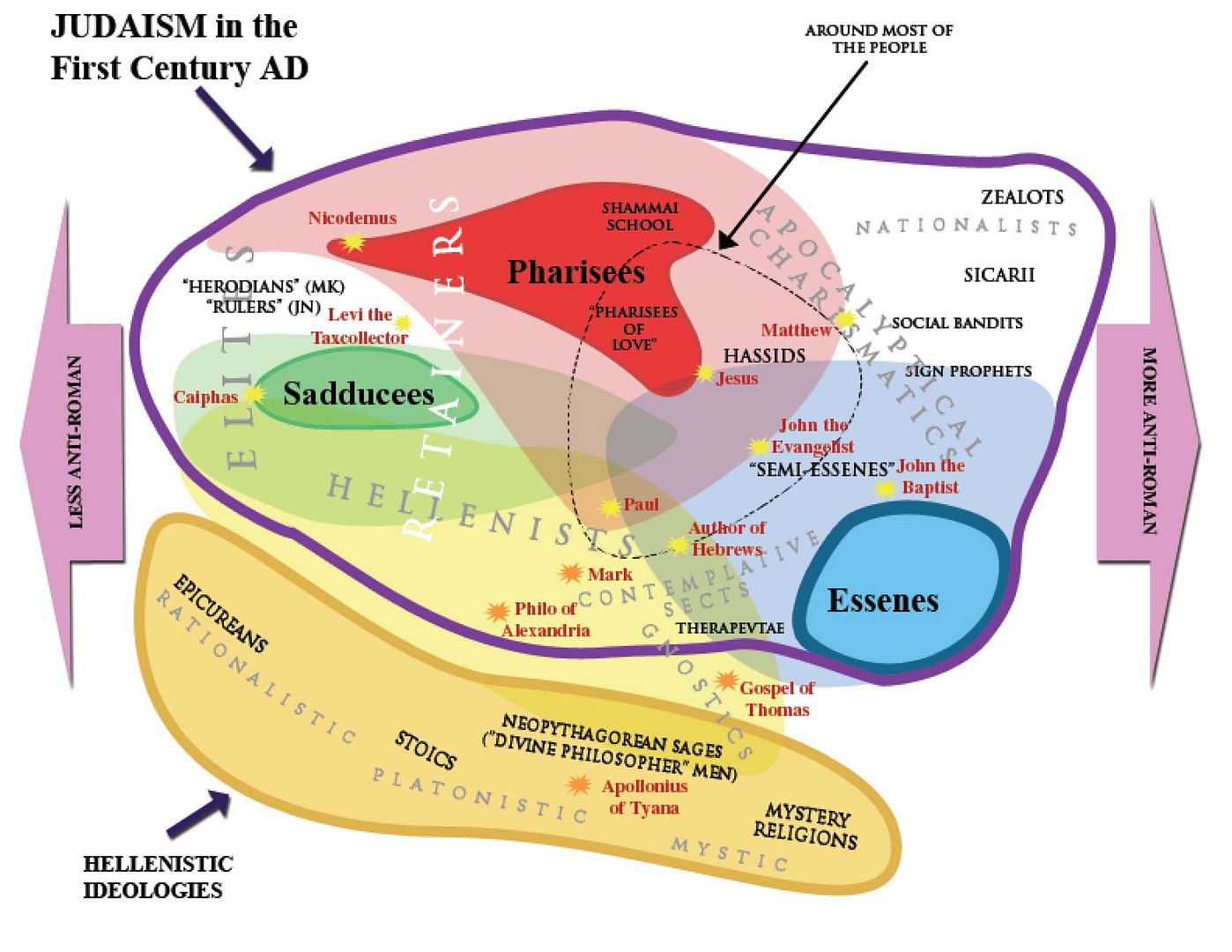
For those of you who missed our last session, Eric created an image to help us understand the perspective of the writers of the Gospel (and New Testament). By exploring their position within first century Judaism, we better understand their motives for what they chose to write, to whom they wrote, and why they wrote the way that they did. Paul, Mark and the author of Hebrews, for example, were much more Hellenistic in their approach to writing and in the way they communicated with their audience. Matthew, on the other hand, was closer to what we would consider charismatic. Our analogy was that he was Malcolm X to perhaps John's Martin Luther King Jr. Additionally, recognizing the various sects or theological leanings of the Jews during Christ's ministry helps us interpret the writer's intent and provides some context for Christ's teachings. (I think this will probably become more relevant as we move into the Sermon on the Mount and the Parables.)
The Gospels seem to indicate that John the Baptist expected Christ to bring the fire and brimstone John had been preaching prior to the Baptism. Jesus came with an entirely different message. Instead of dispossessing or expelling sinners, He offered a relationship, based not on a list of criteria to be met or rules to be maintained, but on a more mature and profound level. Consanguinity. Blood relations. Deep intimacy. Forgiveness. Grace. (Eric, I would love some clarification or comment on this point.)
Christ, noteably, falls into the middle of the "amoeba" and appealed in different ways to all of the modes of thought represented. Yeshua was extremely relevant, but at the same time he was redefining everything about how the Scripture represented the Messiah. He "turned the tables" and in many ways seemed to disorient previous concepts of what God's savior for Isreal really looked like. Jesus provided a theological middle ground undermining many previously divisive interpretations of what the Kingdom of God looked like; the result (if accepted) would be unprecedented unity (not to mention truly divine simplicity.) The preparation and opportunity which God provided (and provides) for all peoples to hear and understand the Good News can be traced throughout this "turning of the tables" and ultimately into the growth of a new sect of Judaism that we now embrace as Christianity. The more we pursue the relevance, and significance of Christ's teachings to His own generation, the more bafflingly beautiful God's plan of redemption appears.
No comments:
Post a Comment